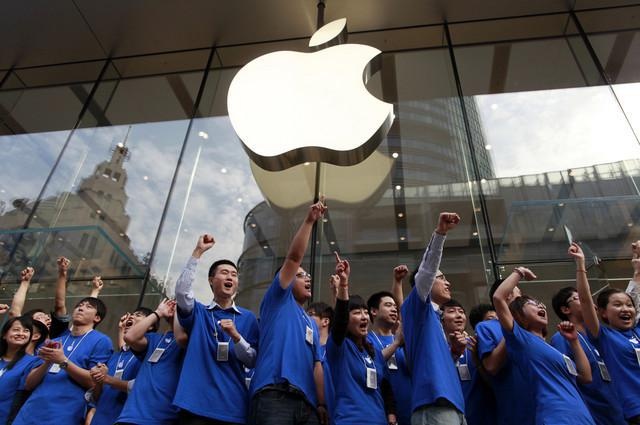Apple is having a hard time in China these days. The economy of Apple’s largest market after the US is slowing down, which led the company to sell not as many iPhones it would have hoped in the last quarter. Just as worrisome, Apple is also facing some pushback from the government, which recently shut down the iBooks and iTunes Movie Stores in the country. What’s Apple to do about it?
There is nothing Apple can do about the deceleration of the Chinese economy, but there is a lot the company can do to warm the relationship with the people’s republic.
Back in April, the news fell that a state agency was behind the shut down of the iBooks Store and iTunes Movies in China. This, mind you, happened only six months after the two services were made available in the country.
China is no stranger to that kind of move, and while it is overly protective of what people can see, say, or do inside its own borders, it’s just as protective with what content companies can make available to the people. Especially if it’s a foreign company. Even worse if it is a US company. Adding fuel to the fire, a report from the NY Times yesterday explains how Chinese authorities are putting more scrutiny on big foreign companies (including Apple) because of the potential security threat they pose to the country.
That isn’t completely unprecedented. Ask Google, Twitter, and Facebook how they’re doing in China. So far, Apple has had it good because it was more of a hardware provider than a software or content provider per se. But now that the company is extending its offering beyond just the iPhone, iPad, and Mac, it’s raising flags in China.
Apple’s response has been almost obvious within the past week. First, the company made a sizable investment of $1 billion in the Chinese rip off of Uber, Didi Chuxing. According to the NY Times, the deal was closed in three weeks. Heck, it took me more time than that to close escrow on my house!
That move is important for several reasons though.
To my knowledge, this is the largest investment Apple has made in a company. And this is a Chinese company too. There is great potential return on investment here, all from a financial, technological, and political standpoint. Financial because Didi is wildly successful in China and seems to have some sort of unspoken backing from the government. Technological because this investment may very well help Apple figure out a thing or two about the car industry, and mapping (remember Project Titan?). Political, because making a billion dollars investment probably didn’t go unnoticed from the Chinese government.
Because a billion dollars doesn’t say “I love you” loud enough, Tim Cook also made a quick trip to China yesterday, and not too coincidentally, Apple added new sounds to GarageBand to “celebrate the rich history of Chinese music.” Talk about wining and dining!
I’m not sure about how much new GarageBand loops will help the company’s efforts in China, but a large stake in the dominant ride sharing service is sure to help reopen those doors that have been closed left and right lately. This will give Apple a stronger, albeit indirect, foothold in China without raising too much concerns, and at the same time, it may help warm this cooling relationship.
To be clear, I am not criticizing Apple here. There is nothing the company can really do besides honey talking China. I just think it’s interesting to see this develop before our eyes.
